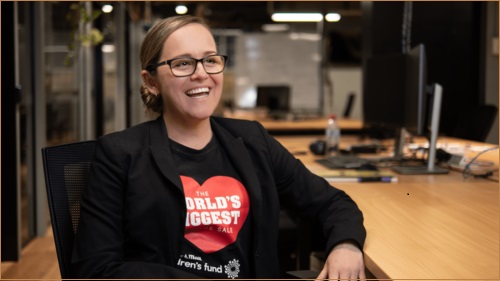For many businesses the pandemic shutdown has been the opportunity to shift focus to new models. Finding their physical pop-up stores shut down, the World’s Biggest Garage Sale made the move to virtual events and, in the process, discovered new markets and how supportive good investors can be.
“Given our event based model, COVID-19 basically shut us down,” co-founder Yasmin Grigaliunas, told Information Age. “We had a pop-up event on the 14th of March, which was the same weekend the Prime Minister announced that any events with more than 500 people would be shut down as of the Monday.
“We had 1,500 people through the doors on the Saturday. We took all necessary precautions, leaning on the National Retail Association, confirming that we would be compliant for this pop-up. There was a sense of calm on the day, but I won't lie, there were more people than we anticipated coming through the doors.”
The World's Biggest Garage Sale is a profit-for-purpose business that works with charities to bring donated goods back into the community through one day marketplaces.
Following the Prime Minister’s mid-March announcement, Grigaliunas and her team looked to shift the marketplaces online through Shopify where she found support from staff, customers and investors.
“We knew that we would need to continue to bring in revenue, so we increased focus on our little Shopify online store, which wasn't ever a key focus, more a bonus for customers wishing to trade with us after events.
“When the focus shifted to online, the team responded well and everyone began learning all things e-commerce. My background helped, with some history in this space, but there was an element of dusting off the cobwebs.
“We are an agile team, so we simply planned all things ecommerce into the sprints and began executing.”
Grigaliunas also found investors were supportive. “One of the most interesting calls made was to an investor, who just prior to COVID, confirmed their seed investment of $125,000, which was then deposited into our account.
“I rang him as soon as we knew things were changing, to have 'that' conversation. It went something like.....’Hey, you know that capital you invested? Well, I'm not so sure we're going to do with it what we said we would do.’
“He responded, ‘that's not a problem, just keep your team, do what you need to do. I invested in you.....so stay alive during this period and what you end up creating from it doesn't matter as much. I know you've got this.’
“Then a couple of weeks later, we had an announcement about a State Government Grant we applied for late in 2019. This grant was a 50% matched grant and we received notification that we got it! Only problem was, the 50% matching.....in a time of uncertainty.
“So our investor confirmed another $25,000 investment, then we had another investor do the same," Grigaliunas said.
"This $50,000 of extra capital, meant we didn't need to compromise on the grant, and we could fund our 50%, to execute on the work.
"What was the work? A complete overhaul of our website, a digital strategy review, a marketing strategy and full workload on preparing WBGS for a global scale. What timing! We couldn't believe it.”
March’s successful event had one downside though; it meant the business may not have been eligible for the Federal government’s JobKeeper wage subsidy.
“The priority was to manage cashflow, as we had no idea whether we would qualify for JobKeeper. It made sense that we would, but the success of the March event, actually meant that our revenues for March were higher than the previous year. We stayed calm and just got on with business.”
However, with help from their accountants, BDO, The World’s Biggest Garage Sale qualified under one of the alternate revenue tests. That support came through as the business moved warehouses and launched a partnership with Officeworks.
“It sent our inboxes into a frenzy and has already provided new leads for additional partners,” Grigaliunas said.
Ultimately, the COVID shutdown has shown the resilience in the business and its team. “We achieved good results in April, we were able to increase our online customer interactions to achieve the budget we set for the team. It was lumpy and not necessarily smooth, but we basically hustled and got the team over the line.
“We uploaded all types of new things, testing the responses and proactively sharing our story in any Zoom calls and events we were attending online. We shared it on socials too, this helped. We didn't spend any money on Google AdWords or other online marketing, it was very much a 'slow and steady' approach, to test new processes and design new systems.
“April was a good result, then we cranked things up for May and doubled our April results. This was a great surprise for the team and they all started to understand sales and ecommerce more deeply. While we still weren't spending money on ads, we were increasing our product range and testing other workflows, which included linking Shopify to other platforms, where we could take a strategic approach to the different customer personas.”
Grigaliunas also believes the pandemic has highlighted the value of socially focused enterprises, saying, “the past 3 months have been a whirlwind. I don't feel like we have slowed down, despite the challenges. I think this will position us well as we all begin to recover and shift into the new normal.
“I genuinely believe that while we were all locked in our rooms to learn many lessons globally, the biggest shift has been in a feeling that social enterprises, impact entrepreneurs and those of us working towards the UN’s Sustainable Development Goals, are no longer seen as weirdo crazies.
“There's definitely been a shift, where collaboration and community are bringing together all the necessary groups, to work together for collective impact and success for all. It's a new normal, something that we are keen to support.
“I won't lie – it's been an interesting time.”










